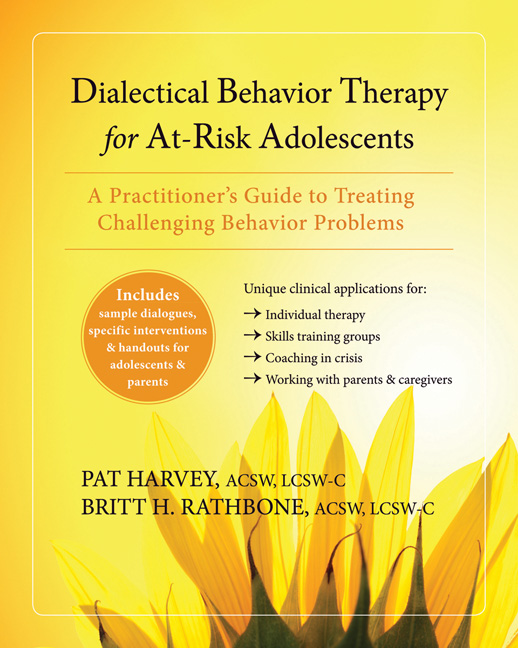By Britt H. Rathbone, MSSW, LCSW-C
How do you effectively manage phone coaching with adolescents in DBT? By Britt H. Rathbone, MSSW, LCSW-C Therapists often identify phone coaching as a reason they are reluctant to implement dialectical behavior therapy (DBT) with adolescents. They fear that this necessary component of the treatment will be disruptive, unmanageable, and personally overwhelming. How do therapists avoid resentment, anger, and frustration with their clients while being available after hours?
It helps to keep a few of things in mind. First, adolescents who violate the personal boundaries of therapist are often behaving similarly with others in their lives. This awareness compels the therapist to address it when it occurs. Adolescents who meet criteria for borderline personality disorder (BPD) often have a history of interpersonal problems; their moods and reactions are intense, and others may distance themselves rather than directly addressing problematic behaviors. If therapists are not willing to tell clients about the impact of their behavior on their relationships, who will?
Secondly, awareness of one’s own personal limits—and clearly communicating them—is the responsibility of the therapist. Young people have no idea where individual therapists draw the line; some take calls twenty-four hours a day, while others are unavailable at times due to medical, sleep, or family needs. Consider using any violation of your personal limits to be an opportunity to discuss them—gently—with your adolescent client.
Finally, be certain that you orient your adolescent clients to phone coaching and its purposes: coaching in a crisis, sharing good news, and identifying a problem in the relationship. Time spent on orientation with some role-plays woven in provide your adolescent clients with a framework for how coaching works.
Addressing problems as they arise allows the treatment to progress, and helps the therapist avoid burnout. When handled effectively, phone coaching calls are brief—and can be life changing for adolescents.
 Britt H. Rathbone, MSSW, LCSW-C, provides mental health services to adolescents and their families in the Washington, DC, area. He has decades of experience working directly with adolescents and families, is consistently voted a “top therapist” for adolescents, teaches graduate students, trains therapists, and leads a highly regarded and successful clinical practice. Rathbone lectures often on the value of using dialectical behavior therapy (DBT) and other evidence-based practices with young people. He is coauthor of Dialectical Behavior Therapy for At-Risk Adolescents, What Works with Teens, and the recently released Parenting a Teen Who Has Intense Emotions.
Britt H. Rathbone, MSSW, LCSW-C, provides mental health services to adolescents and their families in the Washington, DC, area. He has decades of experience working directly with adolescents and families, is consistently voted a “top therapist” for adolescents, teaches graduate students, trains therapists, and leads a highly regarded and successful clinical practice. Rathbone lectures often on the value of using dialectical behavior therapy (DBT) and other evidence-based practices with young people. He is coauthor of Dialectical Behavior Therapy for At-Risk Adolescents, What Works with Teens, and the recently released Parenting a Teen Who Has Intense Emotions.

 2024 Peace Playbook: 3 Tactics to Avoid Clashes with Your Partner
2024 Peace Playbook: 3 Tactics to Avoid Clashes with Your Partner